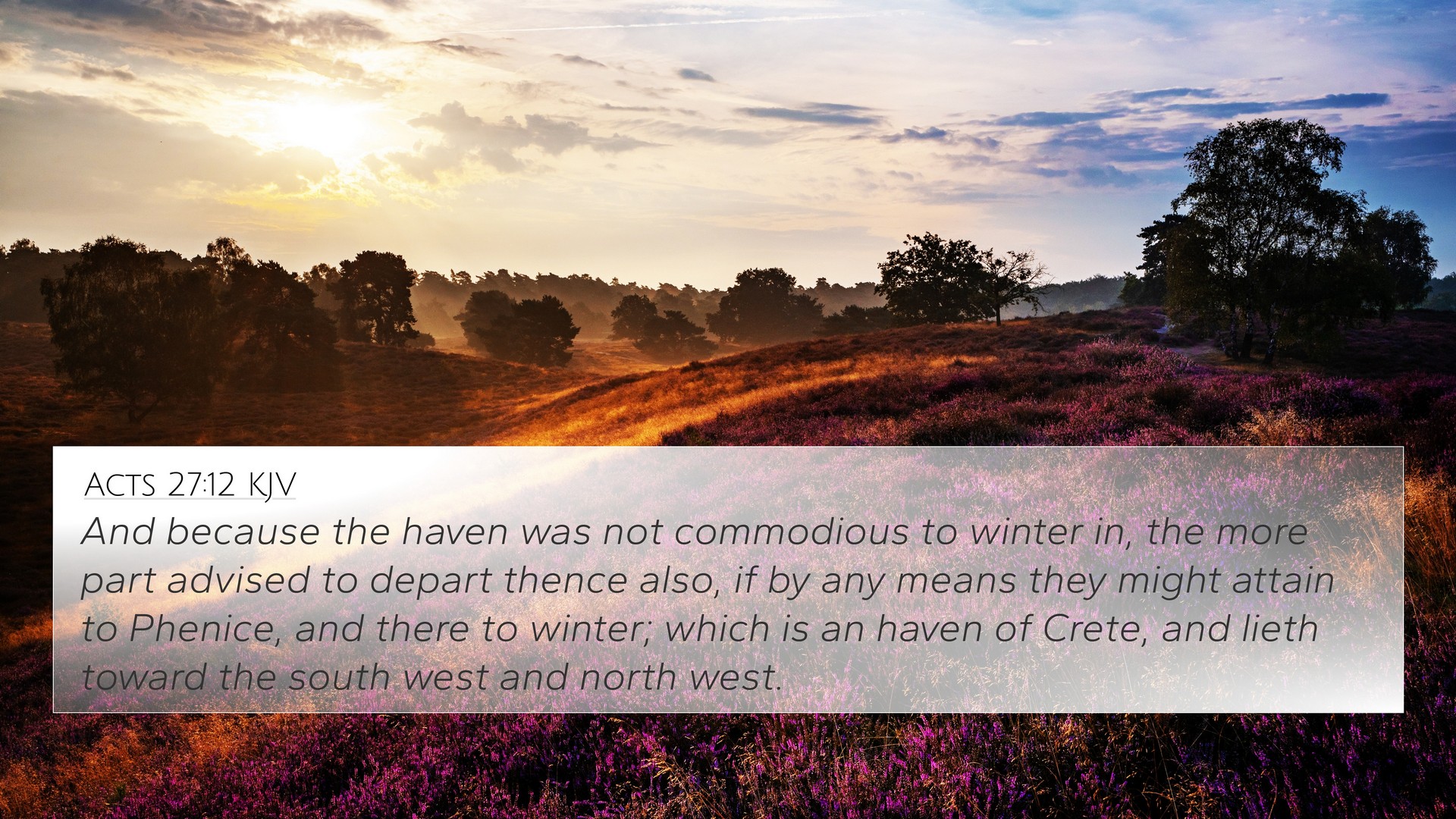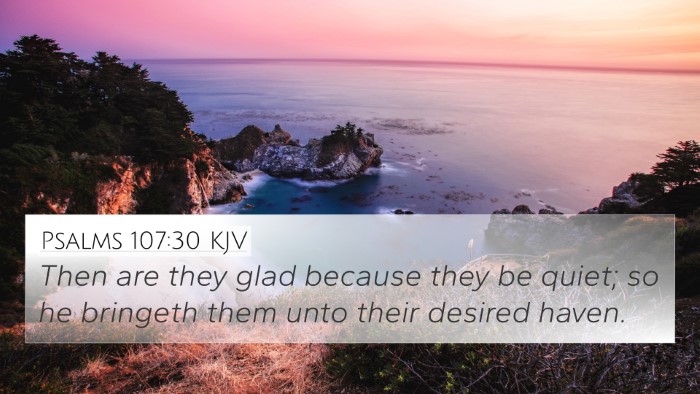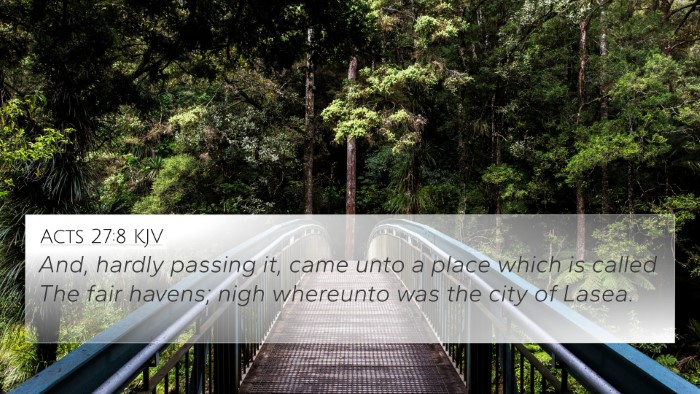Understanding Acts 27:12
The verse acts as a pivotal point within the narrative of Acts, illustrating the context of Paul’s journey at sea. Acts 27:12 reads:
“And because the haven was not commodious to winter in, the more part advised to depart thence also, if by any means they might attain to Phenice, and there to winter; which is an haven of Crete, and lieth toward the south-west and north-west.”
Summary of Insights
This passage engages with the practical decisions made during a maritime journey. By analyzing it through various public domain commentaries, we can glean a richer understanding of its implications and how it connects with broader biblical themes.
Matthew Henry's Commentary
Henry emphasizes the role of navigation and the human decision-making process. The decision to seek a more suitable harbor highlights the struggles faced by the mariners and showcases the tension between human wisdom and divine providence. He points out:
- The importance of safety: The choice was driven by the desire for safety during winter storms, symbolizing the need for guided decisions in our lives.
- Human counsel vs. divine guidance: While the sailors viewed Phenice as a better harbor, the guidance from God is even more critical in navigating life’s paths.
Albert Barnes' Commentary
Barnes elaborates on geographical implications and the significance of "Phenice." He indicates that the harbor's characteristics attract the majority's opinion, signifying how collective reasoning sometimes overshadows godly wisdom. He draws attention to:
- The practical aspect of decision-making: The sailors considered all factors before making their choice, reflecting the necessity of careful deliberation in our actions.
- The symbolic representation of physical voyages: Just as the crew navigated challenges at sea, we too encounter storms in life requiring diligence and discernment.
Adam Clarke's Commentary
Clarke's insights focus on the descriptions of the biblical landscape and the socio-political context of the Mediterranean regions. He states:
- Seasonal implications: The mention of winter directly connects to the idea of being unprotected and unprepared, which serves as a metaphor for spiritual readiness.
- Geopolitical considerations: The harbor of Phenice is indicative of trading routes and communal relationships among early Christians, highlighting the interconnectedness of the early Church.
Cross-References and Thematic Connections
Acts 27:12 connects richly with several other biblical texts, showcasing inter-Biblical dialogue and thematic Bible verse connections:
- Psalm 107:23-30: This psalm speaks of sailors in peril and God’s rescue, creating a parallel with Paul’s maritime challenges.
- Romans 8:28: The assurance that all things work together for good resonates across both passages, emphasizing divine oversight.
- Proverbs 16:9: This verse embraces human plans versus God’s direction—similar to the sailors' decisions discussed in Acts 27:12.
- Hebrews 11:1: Faith as the assurance of things hoped for aligns with the uncertain outcome of the journey faced by Paul.
- Matthew 8:23-27: The calmness of the storm in this gospel passage aligns with the theme of divine peace amidst tempestuous seas.
- 1 Corinthians 10:13: Indicates God’s provision in difficult circumstances, paralleling the hope for safety expressed in Acts 27:12.
- Philippians 4:6-7: Calls for an absence of anxiety, echoing the need for peace in chaotic journeys.
Importance of Cross-Referencing and Thematic Connections
By employing a Bible cross-reference guide, readers can explore how themes in Acts 27:12 resonate throughout the Scriptures. Understanding these connections enables deeper comprehension of biblical messages and enriches personal study. Consider these aspects:
- Encouragement through historical context: Recognizing the trials faced by Paul can inspire perseverance in our journeys.
- Wisdom in collective consultation: The sailors’ reliance on majority opinion serves as a reminder to weigh decisions with a discerning spirit.
- Spiritual readiness: Just as sailors prepared for the winter, we ought to equip ourselves spiritually for the trials ahead.
Tools for Bible Cross-Referencing
To engage in cross-referencing Bible study, consider employing tools such as:
- Bible concordances: Lists of words and their usages across the Scriptures can lead to meaningful connections.
- Bible reference resources: Guides that provide a roadmap through the connections in the Bible enhance study recovery.
- Comprehensive Bible cross-reference materials: Allow for thematic explorations between both the Old and New Testaments.
Conclusion
Acts 27:12 serves not only as a narrative on navigation but also as a profound lesson in faith, community, and persistence. Linking Bible scriptures reveals a beautiful tapestry of divine wisdom and human experience. By understanding and exploring these connections, readers can deepen their faith and navigate their own journeys of faith with assurance and hope.




